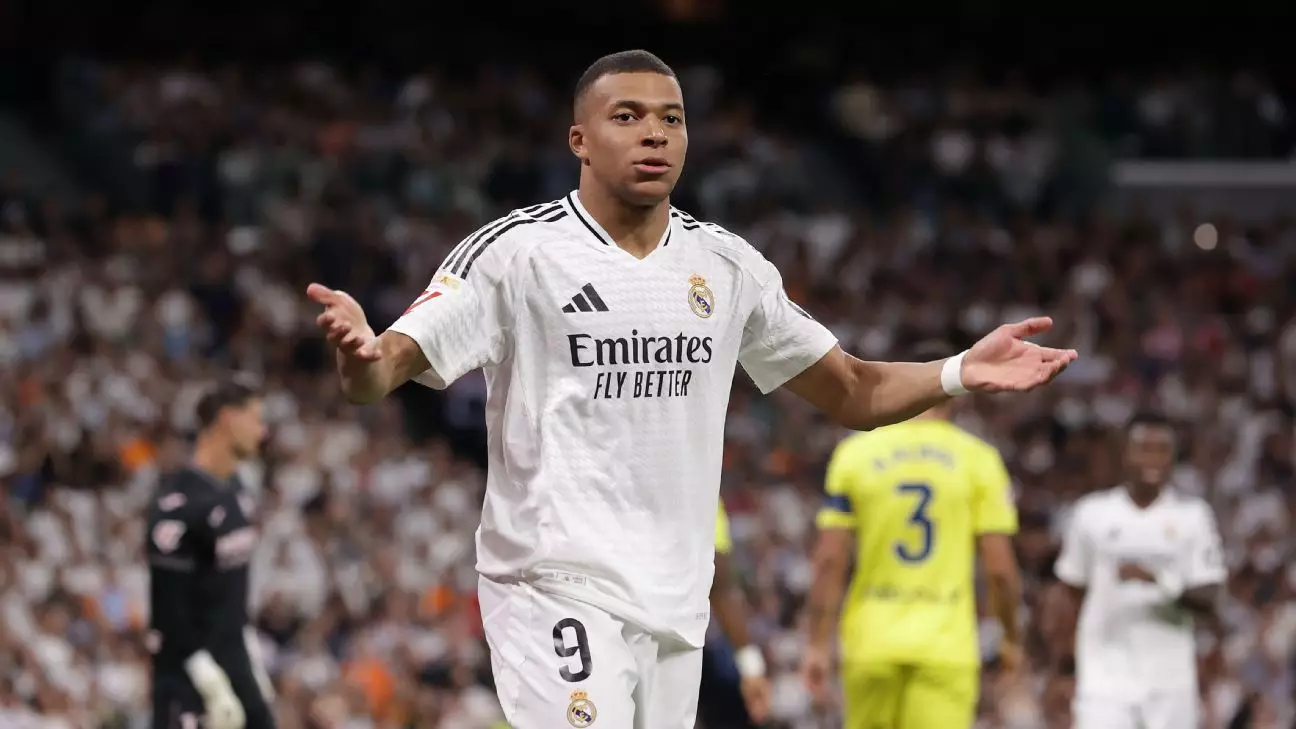In an era where the intersection of celebrity and accountability comes under increasing scrutiny, the recent allegations against Kylian Mbappé have garnered significant attention, stirring a maelstrom of controversy in both the sporting and media landscapes. The French national team captain and Real Madrid star has found himself embroiled in allegations of rape that emerged from a reported incident in a Stockholm hotel. Amidst pervasive media speculation, it has become a case study in the complexities surrounding reputation, legal proceedings, and public perception in the world of sports.
On Tuesday, Mbappé’s representatives vehemently denied these allegations, labeling them as “totally false” and characterizing them as “slanderous rumors.” The gravity of the accusation makes it essential to dissect the broader implications beyond the immediate narrative. How these claims materialize and the subsequent media frenzy can illuminate issues regarding the reliability of sources and the potential damage that unfounded allegations may inflict on an individual’s life and career.
The nature of allegations in high-profile cases frequently evolves, and this situation is no exception. After reports surfaced indicating that Swedish prosecutors had opened an investigation into an alleged incident, media outlets quickly linked Mbappé to the inquiry as a suspect. Such conclusions, often drawn from unnamed sources, can lead to damaging outcomes before any concrete evidence is brought to light. Mbappé’s lawyer contended that the player is known for maintaining an impeccable public and private image, stating that he is consistently surrounded by friends and therefore not exposed to “risk-taking situations.”
This assertion raises important questions about the mechanisms by which the media and public navigate allegations of misconduct. When the balance of suspicion tilts towards an individual, regardless of their past behavior or substantial character, the ramifications can be both swift and merciless. Mbappé himself expressed his outrage through social media, labeling the situation as “Fake News!!!!”—a strong indication of his disbelief and frustration regarding the narrative being spun around him.
Media coverage plays a crucial role in shaping the narrative surrounding allegations such as these. The quick dissemination of speculative information can lead to significant societal consequences, not just for the accused, but also for the accusers and broader community. Reports from outlets like SVT and Expressen revealed that the Swedish authorities confirmed the existence of a complaint but offered minimal details, thereby adding fuel to the fire of speculation. This selective information cascade often breeds further narratives based on incomplete or misinterpreted facts.
The legal principle of ‘innocent until proven guilty’ hangs precariously in the balance when sensational headlines dominate the discourse. Mbappé’s situation highlights the delicate equilibrium between protecting alleged victims and ensuring due process for those accused. A vigilant media must strive for accuracy and not allow the allure of a sensational story to overshadow journalistic integrity.
For athletes like Mbappé, who represent not only their accomplishments on the field but also serve as role models off it, allegations of this nature can have career-defining consequences. The psychological toll it imposes on individuals in the public eye cannot be understated. Amidst the frenzy, Mbappé has managed to continue training with his Real Madrid teammates, indicating a certain resilience and a commitment to his professional obligations despite the chaos that surrounds him.
The football community collectively holds its breath, waiting to witness how this incident unfolds. As of now, assertions of reasonable suspicion—a term used by Swedish authorities, which denotes a lesser expectation of guilt—serve as a reminder to all involved that the legal journey may evolve in unexpected ways. With his club yet to issue a detailed statement on the investigation, the relationship between sports entities and the unfolding public narratives emphasizes the necessity for coordinated communication during crises.
As the events surrounding Kylian Mbappé continue to evolve, they serve as a prompt for critical evaluation of how society engages with allegations, the role of media in this process, and the impact on individuals at the center of such stories. While it is vital to address and take seriously any alleged wrongdoings, equally important is the need to ensure that facts are established before narratives solidify in the public consciousness. Whether Kylian Mbappé emerges from this situation vindicated or otherwise, the conversation surrounding his case provides key insights into the contemporary dynamics of sports, fame, and justice.

